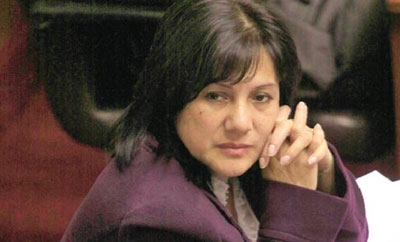Peruvian officials have revealed that 19 politicians are under investigation for drug trafficking ties, underscoring Peru’s vulnerability to the sort of narco infiltration of politics common elsewhere in the region.
On September 2, anti-drugs attorneys Sonia Medina and Julia Principe revealed that five members of Congress, three governors, and 11 mayors are currently subjects of investigation for money laundering and drug trafficking, reported magazine Caretas.
Days earlier, sociologist Jamie Antezana told Caretas that seven congressmen across four political parties were involved in these same illegal activities: three from Gana Peru, two from Fuerza Popular, one from Peru Posible and one from the Alianza Popular Revolucionaria Americana (APRA).
According to Caretas, three politicians appear in both Antezana’s list and the investigators’ list. One of these is the governor of Huanuco, Luis Picon Quedo, who along with his family has been under investigation for money laundering and drug trafficking since 2010.
A second suspect is Cesar Merea, mayor of Satipo in the Junin department, who was accused of drug trafficking while serving in the army and was later accused of sheltering drug traffickers from Mexico’s Tijuana Cartel.
The third politician found on both lists is Maria Lopez Cordova, a congresswoman from Fuerza Popular, who, along with her spouse, has been investigated by Principe for two years for money laundering.
InSight Crime Analysis
This is far from the first time that alleged narco-politics links have emerged in Peru, and the country is susceptible to the sort of organized crime corruption of political institutions seen elsewhere in the region, especially in Colombia, and Mexico. The former ruling party APRA has faced a number of accusations over the years, and current President Ollanta Humala, of Gana Peru, has also been accused of drug ties in the past.
Recently, former Gana Peru congresswoman Nancy Obregon was arrested for drug trafficking and links to rebel group the Shining Path. Other members of former President Alan Garcia’s administration have been accused of accepting bribes from drug traffickers in exchange for reducing their prison sentences.
Politicians from Peru’s organized crime hotspots are particularly vulnerable to corruption. A few of those found on the current list come from or work in departments surrounding the VRAEM region of Peru, one of the centers of Peruvian cocaine production, including Huancavelica, Ayacucho and Junin. Two others come from Huanuco, which, along with Junin, has been a focus of coca-eradication efforts this year.

